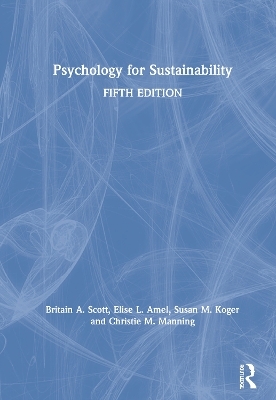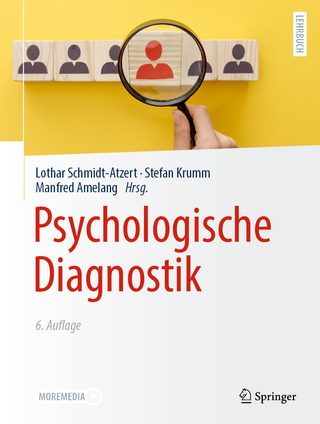
Psychology for Sustainability
Routledge (Verlag)
978-0-367-48068-4 (ISBN)
- Titel z.Zt. nicht lieferbar
- Versandkostenfrei innerhalb Deutschlands
- Auch auf Rechnung
- Verfügbarkeit in der Filiale vor Ort prüfen
- Artikel merken
Psychology for Sustainability applies psychological science to so-called environmental problems that manifest when human behavior disrupts and degrades natural systems. Drawing on environmental psychology, ecopsychology, conservation psychology, and related disciplines, the authors provide an extensive review of relevant theory and research in a lively and easy-to-read style.
This edition represents a substantial revision and expansion spurred by a burgeoning body of research and by global ecological, political, and social developments. Particular attention is paid to environmental justice and collective action for systems change. More than one-third of the content is entirely new, and there are more than nine hundred new references. This edition also features a new full-color design and over two hundred full-color figures, tables, and photos. Timely topics include climate change, biodiversity loss, environmental racism, Indigenous perspectives, social media, and COVID-19 and other pandemics. Content retained from the previous edition has been updated throughout.
The twelve chapters are organized into four parts:
What on Earth Are We Doing includes a prologue on psychology as a sustainability science, followed by three chapters that provide an overview of the ecological crisis and its historical origins, and a vision for a sustainable future.
Psychology for a Sustainable Future encompasses five chapters on research methods, theory, and findings pertinent to understanding and shifting unsustainable behavior.
What’s Good for the Planet is Good for Us includes two chapters that address the reciprocal relationship between planetary and human health.
Being the Change We Want to See introduces two new chapters to inspire readers to take what they have learned and apply it as changemakers in the world. The first is about collective action for systemic change. The second presents a positive psychology perspective on how to tackle the ecological crisis in a way that promotes wellbeing and resilience and is personally meaningful and fulfilling.
Carefully tailored to the length of a standard college semester, Psychology for Sustainability is essential reading for courses on sustainability across disciplines. It will be invaluable to people outside academia as well, including policymakers, legislators, and those working on sustainable communities. The text is also supplemented with online resources for instructors.
Britain A. Scott, PhD, is a professor of psychology at the University of St. Thomas. Britain is a former president of the Society for Environmental, Population, and Conservation Psychology (SEPCP/Division 34 of the American Psychological Association) and is co-creator of Teaching Psychology for Sustainability at www.teachgreenpsych.com Elise L. Amel, PhD, is a professor of psychology and Chair of the Department of Earth, Environment, and Society at the University of St. Thomas. Elise is a former president of SEPCP/APA Division 34 and is the Faculty Director of the St. Thomas Office of Sustainability Initiatives. Susan M. Koger, PhD, is a professor of psychology at Willamette University. Sue is a faculty fellow in Willamette’s Sustainability Institute, and she co-authored two previous versions of this text with Deborah Du Nann Winter. She is a co-creator of Teaching Psychology for Sustainability. Christie M. Manning, PhD, is a director of sustainability and a faculty member in environmental studies at Macalester College. In addition to her academic roles, Christie is an activist working with local climate justice groups fighting the expansion of fossil fuel infrastructure.
PART 1. WHAT ON EARTH ARE WE DOING? 1. What on Earth Are We Doing? 2. How Did We Get Here? Power, Privilege, and a Paradigm Problem 3. Where Do We Go From Here? Applying an Ecological Worldview PART 2. PSYCHOLOGY FOR A SUSTAINABLE FUTURE 4. Psychology Can Help Save the Planet 5. The Power of the (Unsustainable) Situation 6. It’s Not Easy Thinking Green 7. Putting the "I" in Environment 8. To Be (Green), or Not to Be (Green)…It's a Question of Motivation PART 3. WHAT’S GOOD FOR THE PLANET IS GOOD FOR US 9. Making Ourselves Sick: Health Costs of Unsustainable Living 10. Healing the Split Between Planet and Self: We All Need to Walk on the Wild Side PART 4. BEING THE CHANGE WE WANT TO SEE 11. When the Going Gets Tough, the Tough Get…Together 12. Getting Psyched for Sustainability
| Erscheinungsdatum | 12.04.2021 |
|---|---|
| Zusatzinfo | 2 Tables, black and white; 93 Line drawings, black and white; 80 Halftones, black and white; 24 Illustrations, black and white |
| Verlagsort | London |
| Sprache | englisch |
| Maße | 178 x 254 mm |
| Gewicht | 1240 g |
| Themenwelt | Geisteswissenschaften ► Psychologie |
| Technik ► Umwelttechnik / Biotechnologie | |
| Weitere Fachgebiete ► Land- / Forstwirtschaft / Fischerei | |
| ISBN-10 | 0-367-48068-9 / 0367480689 |
| ISBN-13 | 978-0-367-48068-4 / 9780367480684 |
| Zustand | Neuware |
| Informationen gemäß Produktsicherheitsverordnung (GPSR) | |
| Haben Sie eine Frage zum Produkt? |
aus dem Bereich


